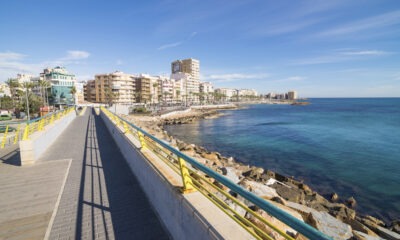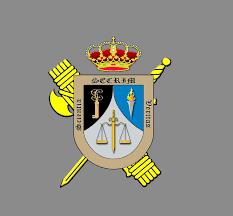

Spanish National News
FOREIGN SECRETARY AND CHIEF SECRETARY TREASURY LAUNCH SCOTLAND ANALYSIS PAPER
Highlights from Foreign Secretary and Chief Secretary to the Treasury launching Scotland Analysis paper in Glasgow.
Foreign Secretary William Hague and Chief Secretary to the Treasury Danny Alexander today launched the latest in a series of Scotland …

Highlights from Foreign Secretary and Chief Secretary to the Treasury launching Scotland Analysis paper in Glasgow.
Foreign Secretary William Hague and Chief Secretary to the Treasury Danny Alexander today launched the latest in a series of Scotland analysis papers, covering the EU and international aspects of Scottish independence.
The Foreign Secretary said in his speech:
“When people and governments in other countries look at the United Kingdom they see one of the most successful political and economic unions the world has ever known and an outward looking country with a global reach that is positioning itself to flourish in a changing world… they see a shared endeavour that has yielded inspiring results; and they wonder why anyone would want to break up such a successful and promising union. It is something we often take for granted but it is not something to give up lightly…
“When Scottish people go to the polls in September, the Yes campaign will make great claims about the romance of national destiny. Uniquely among all the choices we face in life, they will present the choice for Scotland to break up the UK as pure gain and no loss. It is an astonishing claim because the assurances they are giving are based on very shaky ground. On the terms of the White Paper alone, they are offering a fraction of what Scotland already has and at a higher price. There are great risks, and it would be wrong of us to pretend otherwise. Making a decision to remain within the United Kingdom is a positive choice – reinforcing what we already have and reaffirming what more we can be if we continue to work together.
“In the end, this decision is Scotland’s to take. I hope Scotland will choose to remain in the United Kingdom and that together we can continue act for our common good and our common beliefs and values.”
The Chief Secretary to the Treasury said in his speech:
“Today’s new analysis shows that Scotland is between £1.9 billion and £3.8 billion better off in Europe as part of the UK. Leaving the United Kingdom we would see our international influence decrease and we would see the costs to our country increase. So let’s keep a situation where we pay less, and we get more.” (Graphic)
Key points:
• People in Scotland currently have the right to be represented by one of the world’s most influential and respected diplomatic networks, employing over 14,000 people in 267 Embassies, High Commissions, Consulates and other offices in 154 countries and 12 Overseas Territories around the world. This is three times the size of the network proposed by the Scottish Government for an independent Scotland. (International Representation Bar chart)
• Scottish businesses currently have the right to draw on the support of UK Trade & Investment’s services in 169 offices in over 100 countries. This network is six times the size of the current network of 27 Scottish Development International offices which the Scottish Government plans to use as the basis for trade support in an independent Scotland. Even if an independent Scotland were eventually to offer trade support in each of the diplomatic offices it plans, the network would still only be a fraction of the size of that offered by UKTI right now. Last year, UKTI helped 1,900 Scottish businesses. UKTI also works to attract investment, and is one of the UK Government bodies behind the award-winning GREAT campaign. UKTI helped to attract three-quarters of the inward investment projects that generated 13,500 jobs in Scotland last year. (Trade Network Bar chart)
• Scottish families currently have the right to access UK consular representation in over 144 countries, with more than 800 full-time staff working on consular issues at any one time.
• Scottish universities currently have the right to draw on the resources of the British Council in 110 countries. The British Council facilitated 1,000 international school partnership projects in Scotland in 2012, and helped attract over 40,000 students.
• Scottish people are currently part of the United Kingdom, which is the second largest aid donor in the world. In 2012, organisations supported by the Department for International Development (DFID) gave 97.2 million people food aid, and immunised 46 million children against preventable diseases. In the three years to 2013, UK support paved the way for 30 million people, over half of them women, to work their way out of poverty; it helped almost six million children to go to primary school; and prevented 13 million children and pregnant women from going hungry.
Key quotes:
The paper launched today notes:
• “Scotland benefits from and contributes to the UK’s bilateral relationships and representation in multilateral organisations, including the North Atlantic Treaty Organization (NATO), the UN and the EU. While an independent Scottish state would develop its own relationships and international identity, its influence could be diminished and it would likely become more dependent on alliances with other states.”
• “In the event of a vote for independence, in the eyes of the world and in law, Scotland would become an entirely new state. An independent Scottish state would have to start afresh in terms of its formal alliances and links with every other sovereign state, including the UK. As a new state, an independent Scotland would have to apply for membership of the international institutions. In some cases this would be straightforward; in others, notably the EU, it would not. An independent Scottish state would not be eligible to join the United Nations Security Council as a permanent member, nor would it be likely to have single state representation at the G7, G8 and G20.”
• “The EU is a treaty-based organisation and the UK – not Scotland – is the contracting party to the Treaties of the EU. Independent legal opinion sought and published by the UK Government indicates that, as the remainder of the UK would be the same state as the existing UK with the same international rights and obligations, its membership of the EU would continue on existing terms. That includes the important opt-outs the UK has secured, allowing it to keep the pound and control of its borders and immigration policy, as well as a rebate from the EU budget, which sees a rebate of over £3 billion to the UK taxpayer each year… It cannot be assumed that Scotland would be able to negotiate the favourable terms of EU membership which the UK enjoys.”
Case studies
Scotch whisky: Scotch whisky is the UK’s biggest export in the food and drink sector, and supports 35,000 jobs in Scotland. The Scotch Whisky Association (SWA) represents the industry around the world, using the UK’s global diplomatic network to promote whisky exports and tackle barriers to trade. Defending Scotch whisky against counterfeit, discriminatory or excessive taxation, trade barriers and other restrictions is an important priority for UK diplomats. This work was recognised by the SWA which said: “The industry works closely with the UK Government… FCO, BIS, UKTI, DEFRA, and the British Embassy network. The generally high quality level of support received over many years supports the industry’s market access ambitions. Working together, the industry and government can point to numerous trade barriers that have been removed, supporting the competitiveness of the sector.”
Fisheries: Scotland has around 60 per cent of UK fishing opportunities and around 40 per cent of UK fishermen. About 40% of UK spending under the current European Fisheries Fund (EFF) has been in Scotland (€55 million out of €138 million). Scotland benefits from the UK’s influence in Europe, both in annual negotiations on management priorities and in discussions on the reform of the Common Fisheries Policy (CFP) framework, as shown by recent successes in the Fisheries Council. Reforms that will benefit Scottish fisheries, such as a more ‘regionalised’ CFP and the elimination of the discarding of dead fish are high priorities for UK government, and are areas that UK negotiators secured crucial agreements on in reform negotiations in 2013
Farmed salmon: The UK fought hard for the right of the Scottish salmon industry to secure protection against what it saw as unfair trade from imported Norwegian salmon. The UK successfully secured anti-dumping and safeguard measures despite fierce opposition within Europe. This protection provided the Scottish salmon industry with an important ‘breathing space up to 2008 to help it rationalise and improve the productivity of its operations.
Cashmere: In 1999, the US announced its intention to impose tariffs of 100 per cent on a range of high profile EU exports to the US. Among these products were cashmere sweaters, an industry which, at the time, exported around $30 million to the US and employed around 2,000 people in Scotland. Persuading the US to remove cashmere from the retaliation list became one of the top trade policy objectives of the UK Government. This objective was achieved when in September 2000 the US agreed to remove the product from the list.
Scottish power company: The UK’s diplomatic and trade networks were instrumental in helping a leading Scottish power company to land energy contracts in Southern Africa worth in the region of £140 million. The company, employing 400 people in Scotland, was introduced to the Mozambican Ministers for Energy and Trade at a UKTI trade event in Johannesburg. The company’s Chief Executive Officer was also part of the Prime Minister’s business delegation on his visit to South Africa, where the delegation was introduced to the South African Minister for Trade and to the President. These contacts, initiated by the UK, led to the setting up of an energy agreement in which the Scottish company built a power plant in Mozambique near the South African border. The plant started power production in July 2012, supplying electricity to Mozambique and South Africa.
Filed under: http://www.theleader.info/article/42263/
Car and Motor Insurance | Spanish Home Insurance | International Money Transfers | Send Money to Spain | Spain Property | Online International Payments | Property in Spain
Costa Blanca Property for Sale | Cabo Roig Property for Sale | International Payments |
-

 Driving in Spain2 weeks ago
Driving in Spain2 weeks agoHow Long Does it take to Receive a Traffic Fine Through the Post?
-

 News2 weeks ago
News2 weeks agoYour Task for This Week is to Seek Out a Monument – The Week Ahead
-

 Health1 week ago
Health1 week agoQuirónsalud Elche and Quirónsalud Gran Alacant strengthen their services with the incorporation of a new team specialised in advanced ophthalmology
-

 Court News2 weeks ago
Court News2 weeks agoMan in court accused of trying to kill ex-partner with an axe





















